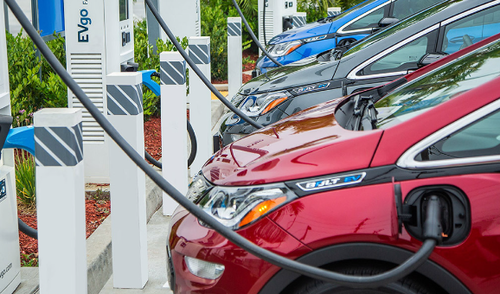The state of EV charging across the nation is likely to take a drastic shift with the incoming Trump administration taking over. The only question is shift in which direction?
After all, the Biden administration was well known for getting precisely nothing done on the charging front, led by Secretary of Transportation Mayor Pete. And so, is the only way to go...up? That's what Wired explored in a new feature out last week.
Three years ago, the U.S. government allocated $7.5 billion under the Biden administration to build public EV charging stations, aiming to support a shift to electric vehicles and achieve 40% zero-emission car sales by 2030.
However, the incoming Trump team reportedly plans to redirect these funds to priorities like domestic battery-mineral processing, arguing EV charging isn't a "national defense" issue, according to a new feature from Wired.
The question then whether the states will have more pull than the federal government. Some companies seem to think so.
Revel, an electric vehicle charging and ride-hail company, is expanding strategically to areas supportive of EV growth. Already operating in NYC and planning a Los Angeles site, Revel announced eight new Bay Area locations set to open by 2025.
The company focuses on cities with strong EV policies, like New York’s push to electrify taxis by 2030 and California’s ride-hail EV mandates.
CEO Frank Reig highlights that incentives often come from local utilities rather than federal programs. For example, NYC’s ConEdison covers half the costs of installed chargers. This urban-centric approach reflects a concern that EV infrastructure could become politically divisive, with federal support potentially dwindling under the incoming administration.
He said: “The vast majority of incentives, grants, and subsidies for a business like us is really not at the federal level. Oftentimes, it’s not even at the state level.”
“The next 10 years [in EV charging] is all about the urban environment, cities, middle- and lower-income folks,” he continued.
Wired writes that bipartisan support for EV charging remains. Jason Mathers, the associate vice president of the zero-emission truck initiative at the Environmental Defense Fund commented: “There is broad support for electrification amongst a whole bunch of critical stakeholders.”
States like Texas, Kentucky, and Ohio, alongside California and New York, are advancing charger installations with $3.5 billion in allocated federal funds.
Advocates argue that expanding EV infrastructure is critical for job creation, economic competitiveness, and reducing reliance on China for battery materials, emphasizing that a nationwide approach is essential.
